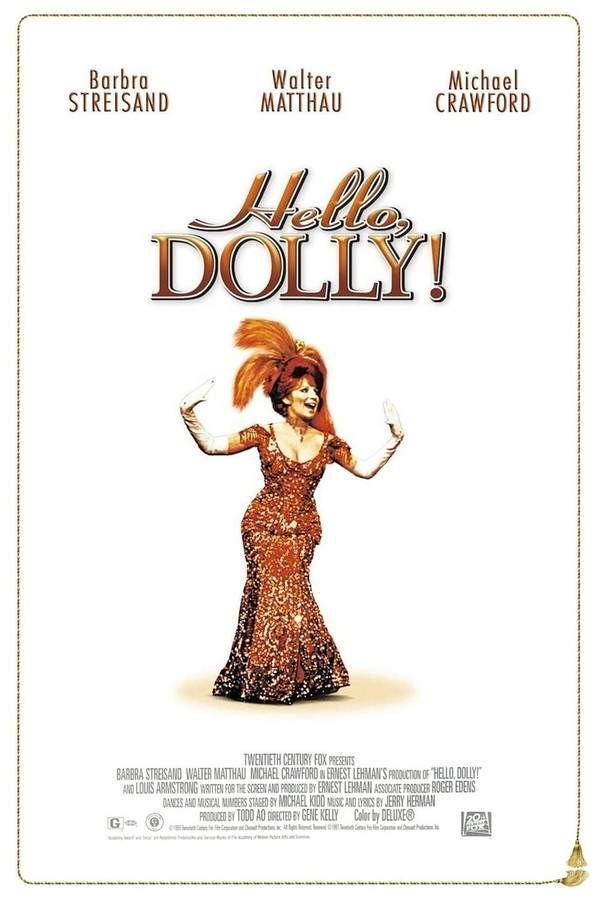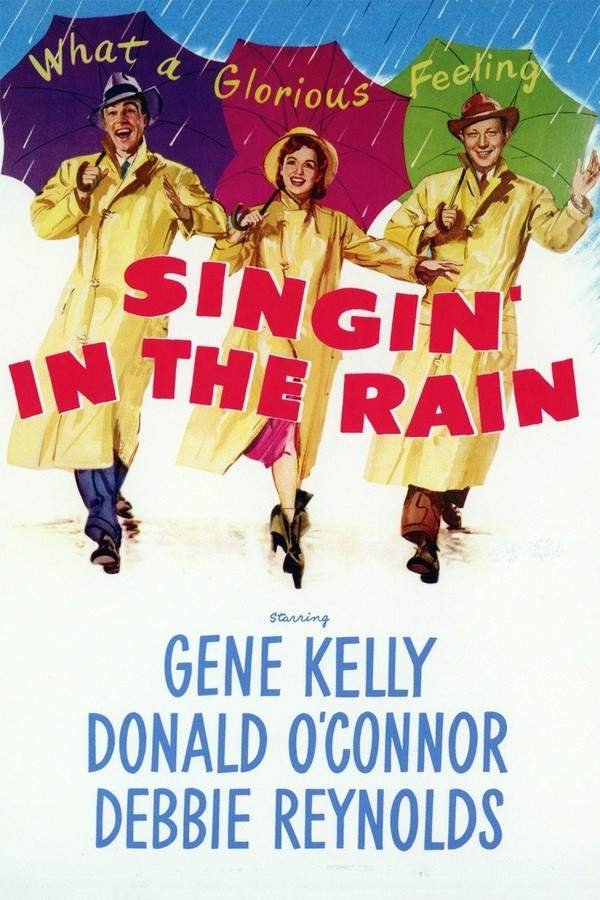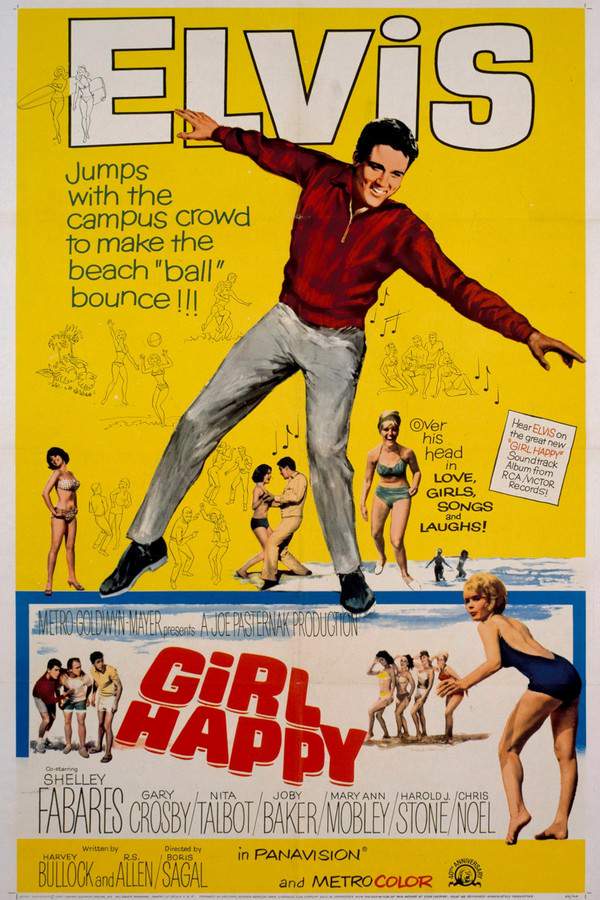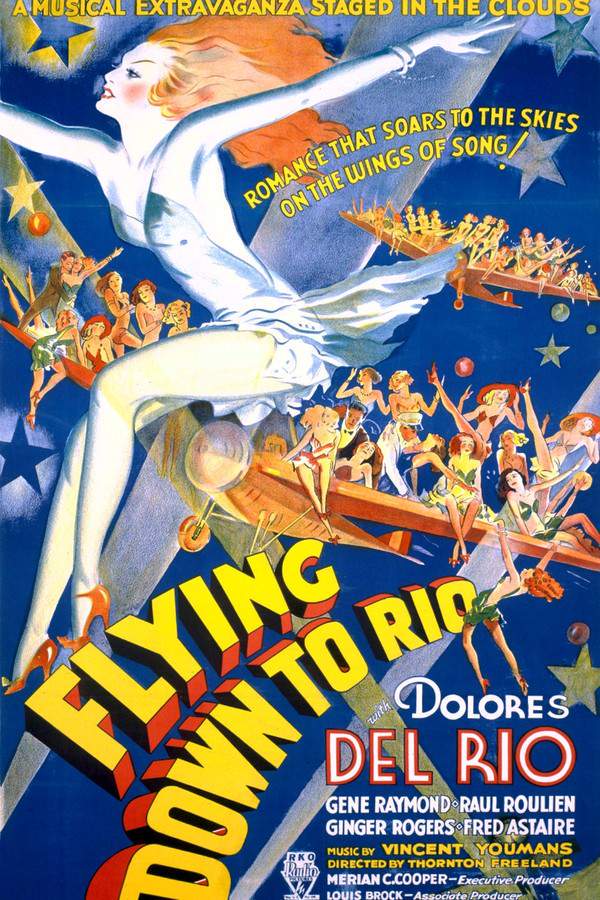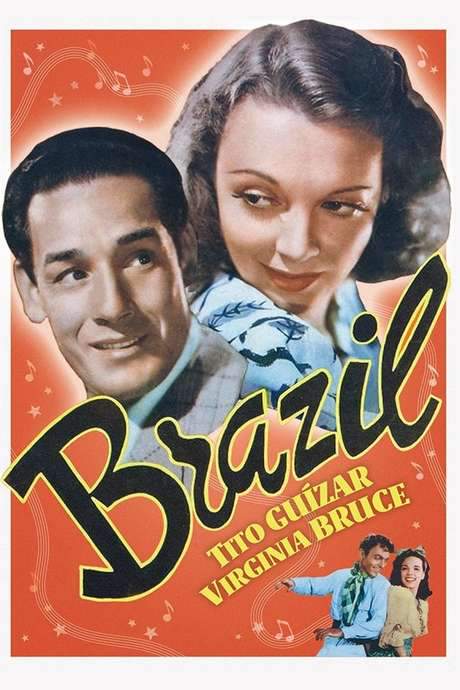
Nancy Goes to Rio
Year: 1950
Runtime: 100 mins
Language: English
Director: Robert Z. Leonard
Set against a bright Easter backdrop, the Technicolor MGM musical follows a mother and her daughter who both audition for the same coveted singing part, unaware that they are also vying for the affection of the same charming suitor. Their rivalry fuels a lively, comedic showdown of songs and family dynamics.
Warning: spoilers below!
Haven’t seen Nancy Goes to Rio yet? This summary contains major spoilers. Bookmark the page, watch the movie, and come back for the full breakdown. If you're ready, scroll on and relive the story!
Nancy Goes to Rio (1950) – Full Plot Summary & Ending Explained
Read the complete plot breakdown of Nancy Goes to Rio (1950), including all key story events, major twists, and the ending explained in detail. Discover what really happened—and what it all means.
On the closing night of a Broadway play, the leading actress Frances Elliott Ann Sothern hosts a glamorous party that buzzes with chatter and glossy theater chatter. The guest list glitters with a mix of perfume and nerves: her eccentric father Gregory Elliott Louis Calhern, a veteran actor with a wary eye on every new role, and her seventeen-year-old daughter Nancy Barklay Jane Powell, an aspiring actress eager to prove herself. Brazilian playwright Ricardo Domingos Fortunio Bonanova arrives with a calm confidence, already weighing Frances as a potential star for his next project. The gathering also hints at business and romance, as a practical businessman, Paul Berten Barry Sullivan, moves through the room with a quiet smile, while Marina Rodrigues Carmen Miranda lends a lighthearted warmth to the affair. The mood is a delicate blend of dreams, doubts, and the sheer pressure of Hollywood and Broadway colliding at a single, luminous moment.
From the moment the party begins, the looming question of the next production casts a subtle shadow over every conversation. Ricardo, though publicly gracious, privately tells Frances’ producer that while Frances is a strong possibility, he has a younger, perhaps more suitable actress in mind for the role. He chooses his words carefully, leaving the door open to a change in plans that could upset the mother-daughter balance that already feels precarious. Then, when Ricardo meets Nancy, his eyes light up with the certainty that he has found the exact girl to carry his next work—an impression that instantly unsettles Frances, who has counted on the part to anchor her own stage career and reputation.
The next day, the group’s journey veers toward the tropics as Frances sails for Rio de Janeiro, determined to devote herself to study and the sea-air that might sharpen her performance. Gregory accompanies her, a protective presence that oscillates between fatherly pride and old-world vanity. Nancy, meanwhile, heads to Connecticut to participate in a small stock company production, her own hopes stoked by the sight of a path that could diverge from her mother’s shadow. Yet the drama aboard the ship is not far behind: Paul overhears Nancy rehearsing her lines and misreads the scene as a desperate, pregnant wife in a desertion scenario. He feels a stirring sense of obligation and moves to help, enlisting his business partner Marina to guide the young actress through the choppy waters of acting, romance, and misperceived motives.
Nancy, unaware of Paul’s protective concern, misreads his attentions as a marriage proposal, a misunderstanding that sets the course for a comic, ironic tangle. She gently declines, and when the ship reaches Rio, their paths diverge more than they converge. A brief reunion with Frances confirms the tension: Nancy discovers that her mother and the older generation have been quietly pursuing the same part, both drawn to Ricardo’s project, and this shared ambition knocks her off balance. In a moment of teenage honesty and motherly pride, Nancy decides to bow out of the play she had thought would be her breakout, choosing to avoid confessing that she was originally set to star in Ricardo’s production. Instead, she claims a different project, insisting that her plans have shifted in a new direction.
Yet the story deepens in the shadows of misunderstandings. Nancy’s attempt to reconnect with Paul leads to a muddled exchange in which he remains puzzled by her behavior and the way she projects a future filled with expectations she cannot yet name. He believes she is pregnant and seeks to guide her through a difficult, emotionally charged moment by sending her home to speak frankly with her mother. Nancy misreads his intent once again, assuming he wants her to discuss an impending marriage, a misread that only fuels the tension between two generations navigating love, ambition, and the burden of parental expectations.
Marina, ever the social foil and practical confidante, becomes the voice of clarity in private, revealing that Nancy’s crisis—though real to her—has little to do with pregnancy and much more with the confusion of growing up under the shadow of a famous parent. This revelation reaches Frances, who, through a combination of misinterpretation and later insight, begins to grasp the difference between a mother’s hopes and a daughter’s needs. When the truth finally unravels, Paul discloses that he had merely met Nancy on the boat and felt a paternal concern for her well-being, not a betrothal or a marriage plan. Gregory, with his seasoned wisdom, pieces together the mosaic of events and explains the misunderstanding to Frances, clearing the air with a calm, paternal gravity.
What follows is a quiet, buoyant reconciliation that finds its own rhythm. Frances, shaken but moved by Paul’s genuine warmth and empty-handed honesty, reconsiders her initial judgments and accepts a new sense of romance and possibility. The two embark on a tentative but hopeful romance, founded on mutual respect and a better understanding of each other’s ambitions. Frances chooses to withdraw from Ricardo’s play, not out of spite, but to clear space for Nancy to step into the role that could define her daughter’s career. In a gesture that resolves the central conflict with grace, Frances recommends Nancy as her replacement, recognizing that the younger actress may bring a fresh energy to the production that could equally honor the author’s vision.
As the curtain rises in New York, the dynamic shifts into a satisfying, celebratory finale. Nancy takes the lead on stage, stepping into the spotlight with a blend of youthful verve and the discipline she has learned from watching her mother and Ricardo’s process. The collaboration among the characters—Frances’s evolved understanding of love and career, Nancy’s emergence as a capable star, Paul’s steady, if mistaken, concern, and Marina’s steady, practical guidance—converges into a warm, uplifting end that signals a bright future for all involved. The film closes on a note of backstage harmony meeting front-stage triumph, with the ensemble’s hopes aligned and a new generation ready to claim the stage with confidence and grace.
Last Updated: October 09, 2025 at 11:28
Explore Movie Threads
Discover curated groups of movies connected by mood, themes, and story style. Browse collections built around emotion, atmosphere, and narrative focus to easily find films that match what you feel like watching right now.
Glamorous Backstage Musical Comedies like Nancy Goes to Rio
Cheerful stories of theatrical life, rivalry, and romance behind the curtain.If you liked the bright, cheerful energy and theatrical setting of Nancy Goes to Rio, you'll enjoy these other movies. This collection features similar musical comedies with backstage drama, romantic mix-ups, and ultimately uplifting stories about performers and their dreams.
Narrative Summary
Narratives in this thread often follow performers, from aspiring newcomers to established stars, as they juggle their careers with personal entanglements. Conflicts arise from professional rivalry, romantic misunderstandings, or the pressures of show business, but the tone remains comedic and the resolutions are harmonious, often culminating in a triumphant performance.
Why These Movies?
Movies are grouped here for their shared focus on the theatrical world, their light and cheerful tone, and the blend of music, comedy, and romantic plots. They offer an escape into a glamorous setting where drama is entertaining and endings are happy.
Lighthearted Mother-Daughter Relationship Stories like Nancy Goes to Rio
Warm and comedic tales of generational connection and gentle rivalry.Fans of the warm and comedic mother-daughter dynamic in Nancy Goes to Rio will appreciate these similar movies. This selection focuses on stories where generational bonds are tested by gentle competition or misunderstanding but are always resolved with affection and harmony.
Narrative Summary
The narrative pattern centers on a mother and daughter navigating a shared interest, often a career or romantic pursuit, which leads to a comedic rivalry or misunderstanding. The conflict is never truly bitter; instead, it serves to highlight their love and ultimately leads to a deeper understanding and a happy resolution for both.
Why These Movies?
This thread groups movies that share a gentle, comedic approach to exploring family bonds, specifically between mothers and daughters. The similarity lies in the light emotional weight, the avoidance of true trauma, and the ultimately warm and uplifting resolution of any familial tension.
Unlock the Full Story of Nancy Goes to Rio
Don't stop at just watching — explore Nancy Goes to Rio in full detail. From the complete plot summary and scene-by-scene timeline to character breakdowns, thematic analysis, and a deep dive into the ending — every page helps you truly understand what Nancy Goes to Rio is all about. Plus, discover what's next after the movie.
Nancy Goes to Rio Timeline
Track the full timeline of Nancy Goes to Rio with every major event arranged chronologically. Perfect for decoding non-linear storytelling, flashbacks, or parallel narratives with a clear scene-by-scene breakdown.

Characters, Settings & Themes in Nancy Goes to Rio
Discover the characters, locations, and core themes that shape Nancy Goes to Rio. Get insights into symbolic elements, setting significance, and deeper narrative meaning — ideal for thematic analysis and movie breakdowns.

Nancy Goes to Rio Spoiler-Free Summary
Get a quick, spoiler-free overview of Nancy Goes to Rio that covers the main plot points and key details without revealing any major twists or spoilers. Perfect for those who want to know what to expect before diving in.

More About Nancy Goes to Rio
Visit What's After the Movie to explore more about Nancy Goes to Rio: box office results, cast and crew info, production details, post-credit scenes, and external links — all in one place for movie fans and researchers.

Similar Movies to Nancy Goes to Rio
Discover movies like Nancy Goes to Rio that share similar genres, themes, and storytelling elements. Whether you’re drawn to the atmosphere, character arcs, or plot structure, these curated recommendations will help you explore more films you’ll love.
Explore More About Movie Nancy Goes to Rio
Nancy Goes to Rio (1950) Scene-by-Scene Movie Timeline
Nancy Goes to Rio (1950) Movie Characters, Themes & Settings
Nancy Goes to Rio (1950) Spoiler-Free Summary & Key Flow
Movies Like Nancy Goes to Rio – Similar Titles You’ll Enjoy
Flying Down to Rio (1933) Full Summary & Key Details
Blame It on Rio (1984) Spoiler-Packed Plot Recap
Movin’ with Nancy (1967) Detailed Story Recap
Down Argentine Way (1940) Ending Explained & Film Insights
Neptune’s Daughter (1949) Ending Explained & Film Insights
Latin Lovers (1953) Spoiler-Packed Plot Recap
Road to Rio (1947) Movie Recap & Themes
Rio Rita (1942) Movie Recap & Themes
Brazil (1944) Movie Recap & Themes
That Night in Rio (1941) Spoiler-Packed Plot Recap
Three Loves Has Nancy (1938) Detailed Story Recap
Manhattan Cocktail (1928) Story Summary & Characters
Going Hollywood (1933) Ending Explained & Film Insights
Glorifying the American Girl (1929) Full Movie Breakdown
Rich, Young and Pretty (1951) Story Summary & Characters

